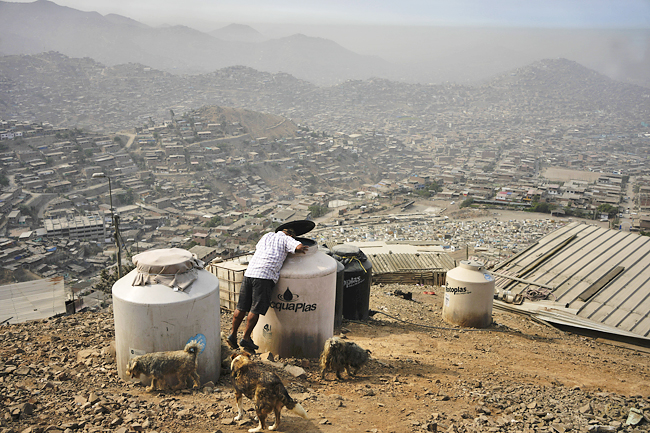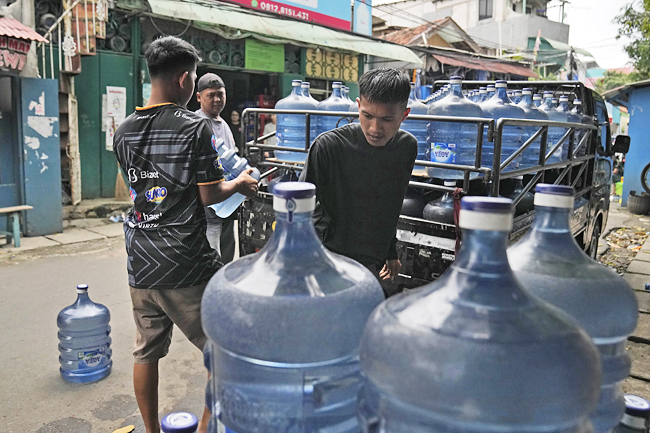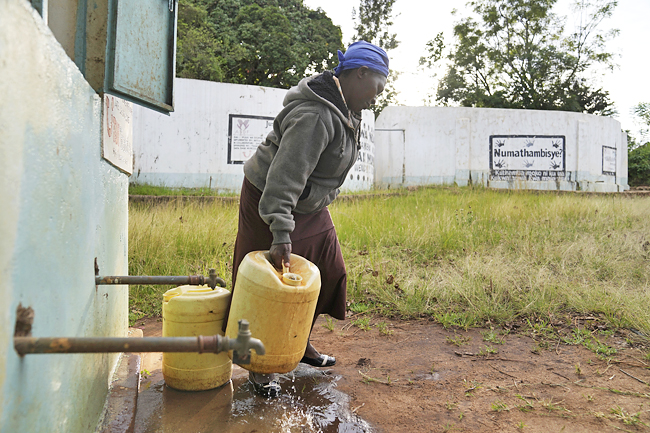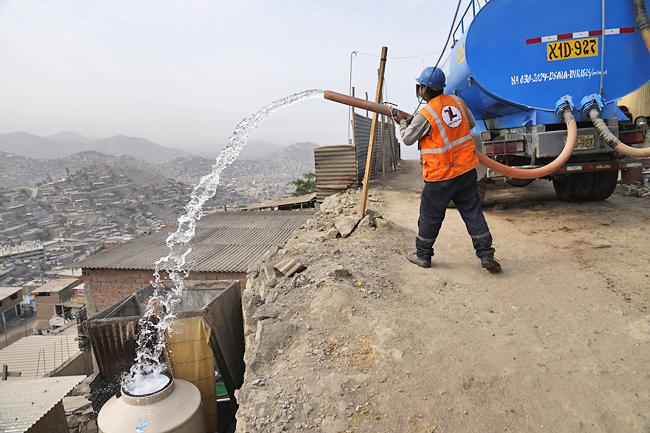AP – As the world warms from human-caused climate change, fresh water for drinking, cooking and cleaning is becoming harder to get for many people. That’s because the warming world is leading to erratic rainfall patterns, extreme heat and periods of drought – on top of decades of bad water management and extractive policies around the world.
The United Nations estimates that around 2.2 billion people worldwide don’t have access to safely managed drinking water. This World Water Day, Associated Press journalists from around the world interviewed some of the people struggling to get fresh water.
LIMA, PERU
A 50-year-old grandmother Justina Flores lives in a hilly Lima, Peru, suburb with no running water. With some of the water she gets from the government, she washes the clothes of her family of six by hand, and then reuses it to wash the dog or dumps it on the ground outside to keep the dust from coming up and into her house. Peru’s government gives potable water to 1.5 million of its poorest residents, like Flores, living in the hills.
Giant tankers filled with water lug up the steep roads, and the scarce resource often sparks conflicts between neighbours. Flores tries hard to use as little water as possible for all her daily activities. She has an old washing machine, but washing by hand means she can save about 45 litres of water per wash.
She and her family get about 3,000 litres for all their washing, cooking and cleaning each week, while in San Isidro, the richest area of the capital, a family of equal size uses an average of 11,700 litres per week coming from piped water, according to official data. Flores has been a domestic worker in the homes of wealthier families since she was a child, so she’s seen this disparity first hand. “In those houses you can bathe as many times as you want.
Here, at most, it’s twice a week,” she said as she looked outside her window at buildings covering the hills.




JAKARTA, INDONESIA
In the vast archipelago nation of Indonesia, access to clean water is uncertain – even in the country’s most-developed city of Jakarta, where over 10 million people live.
Since she was a young girl, now a 37-year-old mother of three Devi Putri Eka Sari has had to buy water from the vendors going up and down the narrow paved streets in her lower-income neighbourhood – even after the government installed water pipes and pumps pulling water from the ground.
Government water isn’t reliable, she said. Sometimes it just drips from the tap when she turns it on. Even if it did flow regularly, she wouldn’t dare use it for drinking.
“It’s not healthy. It’s filled with bacteria that will make you sick,” she said. “It smells like a pool, like chemicals.”
Her fear about bacteria isn’t unfounded: Seven out of 10 Indonesian households consume drinking water contaminated with E-coli, according to the World Health Organization.
Instead Sari, like millions of Indonesians across the country, buy water in large refillable containers or single-use packaged plastic bottles. They’re easy to find, but create large amounts of trash in the cities’ already plastic-choked waterways.
“It’s what I’ve been doing my whole life,” said Sari. “It’s the option we have.”
RAS EL MA, MOROCCO
Mimoun Nadori crouches to dip his hand into the river and taste the water next to groves where his family has long grown fruits and vegetables on their northern Morocco farms. He grimaces. It’s salty. But it didn’t used to be this way.
“Everything was green,” he remembers. “We drank from the river and washed with the river.
We made a life with it.” But less rainfall and more damming and pumping upstream has left less water flowing through Morocco’s Moulouya River and threatened the livelihoods of farmers like Nadori.



